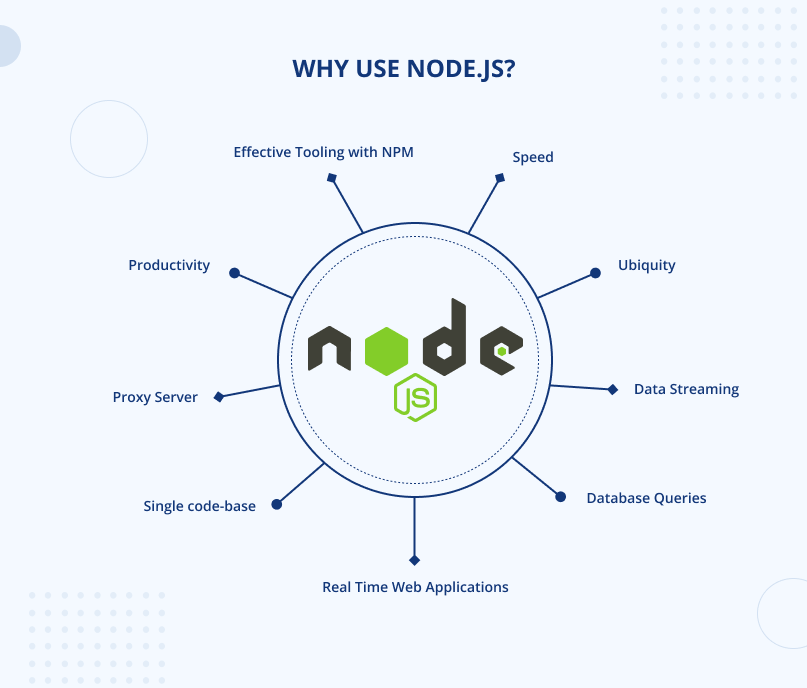Node.js is a runtime environment that allows you to run JavaScript code on the server-side, outside of a web browser. It's built on Chrome's V8 JavaScript engine and provides an event-driven, non-blocking I/O model that makes it lightweight and efficient, particularly for building scalable network applications.
Here's a brief introduction to some key concepts and features of Node.js:
1. Asynchronous and Event-Driven: One of the core features of Node.js is its non-blocking, asynchronous nature. Instead of waiting for operations like file I/O or network requests to complete before moving on to the next task, Node.js uses event-driven programming. It allows you to register callback functions that will be executed once an asynchronous operation is completed, thus making efficient use of resources and enabling high concurrency.
2. npm (Node Package Manager): npm is the package manager for Node.js. It is the largest ecosystem of open-source libraries in the world. With npm, you can easily install, manage, and share packages of JavaScript code to extend the functionality of your applications. You can find packages for various purposes, including web frameworks, database drivers, utilities, and more.
3. Common Use Cases:
-Web Servers: Node.js is commonly used to build web servers. Frameworks like Express.js provide a simple and minimalist web framework for building robust and scalable server-side applications.
-Real-time Applications: Due to its event-driven architecture, Node.js is well-suited for building real-time applications like chat applications, online gaming, collaboration tools, and more.
-API Servers: Node.js can be used to build RESTful APIs for serving data to client applications.
Command-Line Tools: Node.js is also popular for building command-line tools and utilities.
4. Single-Threaded, Non-Blocking I/O Model: Node.js uses a single-threaded event loop architecture to handle multiple connections concurrently. While traditional server-side environments create a new thread for each incoming connection, Node.js uses a single thread to handle all connections. Asynchronous I/O operations prevent blocking and allow Node.js to handle many connections simultaneously.
5. Libraries and Frameworks: Node.js has a rich ecosystem of libraries and frameworks that help developers build applications more efficiently. Some popular libraries and frameworks include Express.js, Socket.IO, Mongoose (for MongoDB), Sequelize (for SQL databases), and many others.
6. Cross-Platform: Node.js is cross-platform, meaning it can run on various operating systems, including Windows, macOS, and Linux, making it a versatile choice for building applications that can run on different environments.
Node.js is constantly evolving, with new features and improvements being added regularly. It has become a fundamental technology in modern web development, enabling developers to build high-performance, scalable, and real-time applications.
Node.js brief Introducation
